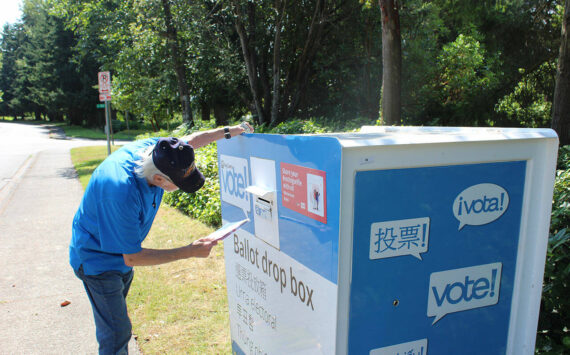The Streamlined Sales Tax Governing Board has granted Washington’s petition to join a multi-state effort to encourage out-of-state sellers to begin collecting sales tax.
The action during the Board’s June 23 meeting in Detroit means Washington joins 21 other states that have partially or fully conformed to the Streamlined Sales and Use Tax Agreement (SSUTA), which radically simplifies the collection of sales tax by businesses that sell over the Internet, by mail order, or through toll-free numbers.
Many of these businesses do not collect sales tax, creating unfair competition for local brick-and-mortar retailers who sometimes unwillingly serve as showrooms for online competitors. Prospective customers check out merchandise locally but buy online to avoid paying Washington’s sales tax.
While these so-called “remote” sellers cannot be compelled to collect sales tax unless they have some physical presence in a state, more than 1,000 of them have agreed to collect sales tax on sales to customers in any state that enacts the SSUTA. In exchange, the sellers benefit from amnesty for past taxes that might be due.
The Governing Board granted Washington associate member status beginning July 1, 2007, and full member status beginning July 1, 2008, the effective date of legislation enacted during the 2007 legislative session (SSB 5089). Associate member status means remote sellers who have signed on to the SSUTA can elect to collect sales tax from Washington customers beginning this July 1, but do not have to do so until the following July 1.
The Streamlining project is good for Washington businesses because it helps reduce the competitive advantage of online retailers, Department of Revenue Director Cindi Holmstrom said. It also will provide more state and local sales tax for services such as education and emergency services.
She said the Streamlined Sales Tax effort has the strong support of business associations, cities and counties.
Holmstrom said the Department of Revenue has embarked on an extensive educational effort to help in-state retailers adapt to a necessary change in how they code local sales tax when a product is shipped to a customer within the state.
Unlike many states, Washington currently has an origin-based sourcing system in which the local tax is credited to the jurisdiction from which a product is shipped. Beginning July 1, 2008, it will switch to a destination-based system in which the local tax must be coded to the location of the recipient of the shipped or delivered merchandise.
This change does not affect sales when the customer picks up the product. In that case, the local tax is coded to the location of the store. It also does not affect shipments made to out-of-state customers. Washington retailers who sell to customers in other states will not be required to begin charging sales tax unless they have a physical presence in those states, but they can elect to do so voluntarily by joining the SSUTA.
The legislation provides qualifying businesses grossing less than $500,000 a year with up to $1,000 in tax credits to offset any necessary changes to their accounting and point of sale systems, or the free use for two years of a certified service provider, a third party that can handle filing of tax returns for the business.
The Department has convened an advisory group of businesses to determine the most effective way to work with businesses on the transition. The Department already provides an Online Tax Rate Lookup Tool, but it is exploring other tools to assist retailers. It also is conducting workshops and providing tutorials and other information on its web site.
For more information on the Streamlined Sales and Use Tax, go to http://www.dor.wa.gov




